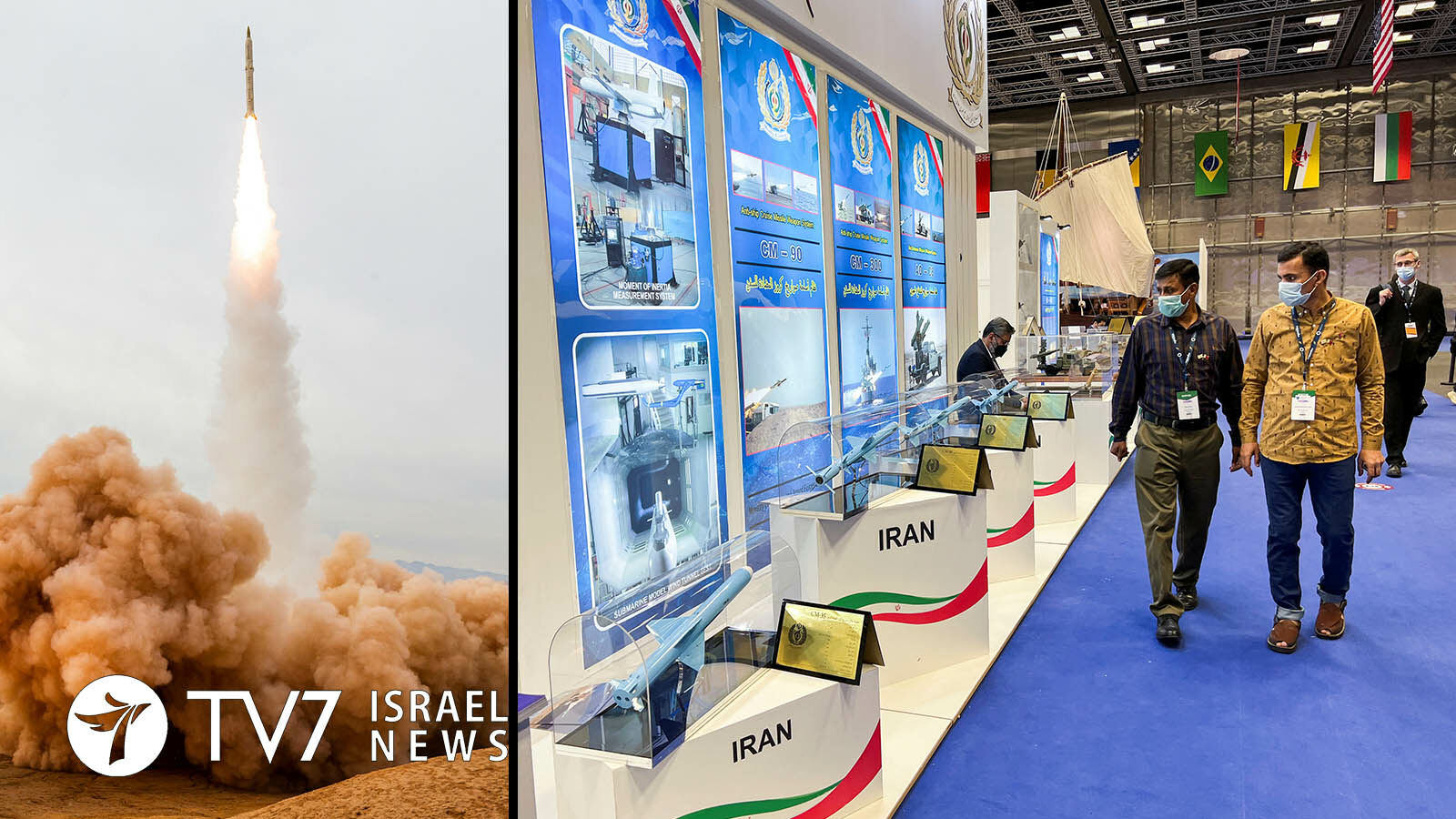Commanders of Iran’s elite Islamic Revolutionary Guard Corps (IRGC) unexpectedly showed up at Qatar‘s DIMDEX exhibition.
By Erin Viner
The presence of the IRGC delegation was striking – when other Sunni Muslim Gulf states and Israel are alarmed at the prospect of the United States removing its terrorist designation as part of efforts by world powers to revive the 2015 Joint Comprehensive Plan of Action at the Vienna Talks with Iran.
The Iran booth showcased models of Iranian missiles at the international defense show, held by Doha in hopes of boosting sales to wealthy Gulf states that are moving to expand the military capabilities of the energy-producing region.
“The participation in the event and pavilion was by the Iranian Ministry of Defense and there were no invitations sent to Iran’s Revolutionary Guard,” a Qatari official said in a statement to Reuters.
The IRGC officials were seen holding meetings, drinking tea and eating dates at the Iranian stall, which featured a giant poster of a fast boat filled with commandos.
Others strolled through the trade floor at the defense show, where they passed an entourage surrounding the commander of the United States Navy’s Fifth Fleet, took cell phone photos of an Italian armored personnel carrier and handled Turkish machine guns.
In a booth adjacent to Iran‘s, the US General Atomics firm displayed its MQ-9B predator drone, engineered to conduct anti-surface warfare including maritime surveillance and precision-guided munitions. The US State Department has authorized the company to sell 18 of the unmanned aircraft to the United Arab Emirates in a deal worth as much as $2.9 billion.
Qatar, a Gulf Arab state that is home to the largest US military base in the region, has good ties with Iran – with which it shares a giant gas field. Neighboring Saudi Arabia, however, is locked in several proxy conflicts with Tehran in a struggle for regional dominance.
The IRGC, which answers directly to Iranian Supreme Leader Ayatollah Ali Khamenei, has expanded in the region via Shi’ite Muslim proxies including in Yemen, where the Houthi insurgent movement launched a barrage of strikes on Saudi oil facilities last weekend.
Riyadh accuses Tehran of arming the Houthis and blames the Islamic Republic for a 2019 assault on Saudi Arabia’s energy heartland and tanker attacks in Gulf waters. Iran denies the charges.
Washington is reportedly considering removing the IRGC from its Foreign Terrorist Organization (FTO) blacklist. in return for Iranian assurances about reining in the elite force, which controls a business empire. Sources say this is among the last issues in indirect talks to revive the nuclear pact.
Iran’s participation at the DIMDEX exhibition drew heavy criticism from the United States.
“We are deeply disappointed and troubled by the presence of Iranian military officials and reportedly Iran’s Islamic Revolutionary Guard Corps officers at the Doha Defense Show in Qatar,” said US State Department spokesperson Ned Price said in a statement.
“We utterly reject their presence at the show and its maritime defense exhibit, as it is Iran that is biggest threat to maritime stability in the Gulf region,” underscored Price, pointing out that, “Transactions related to Iranian weapons are generally sanctionable under multiple US authorities, including sanctions related to terrorism and weapons of mass destruction.”
The incident comes just one day after IRGC Commander-in-Chief Major General Hossein Salami threatened Israel.
“This is a real and serious message. If your mischief is repeated, you will once again experience our attacks and suffer the bitter taste of our missile blows,” Gen. Salami was cited as saying in comments directed at Israel yesterday reported by the semi-official Tasnim news agency.
“We are warning them (Israel) that they should cease their mischief or we will bury them alive,” he added.
The IRGC claimed responsibility for attacks on 13 March against what it claimed were “Israeli strategic centers” in the northern Iraq city of Erbil, the capital of the autonomous Kurdish region. The strikes were seen as apparent Iranian retaliation for Israel’s killing of IRGC officers in Syria, a close ally of Iran, in an air strike on 7 March. The Iraqi Kurdish regional government refuted Tehran’s claims – saying that a dozen missiles fired from the Islamic Republic hit “civilian residential areas.”
